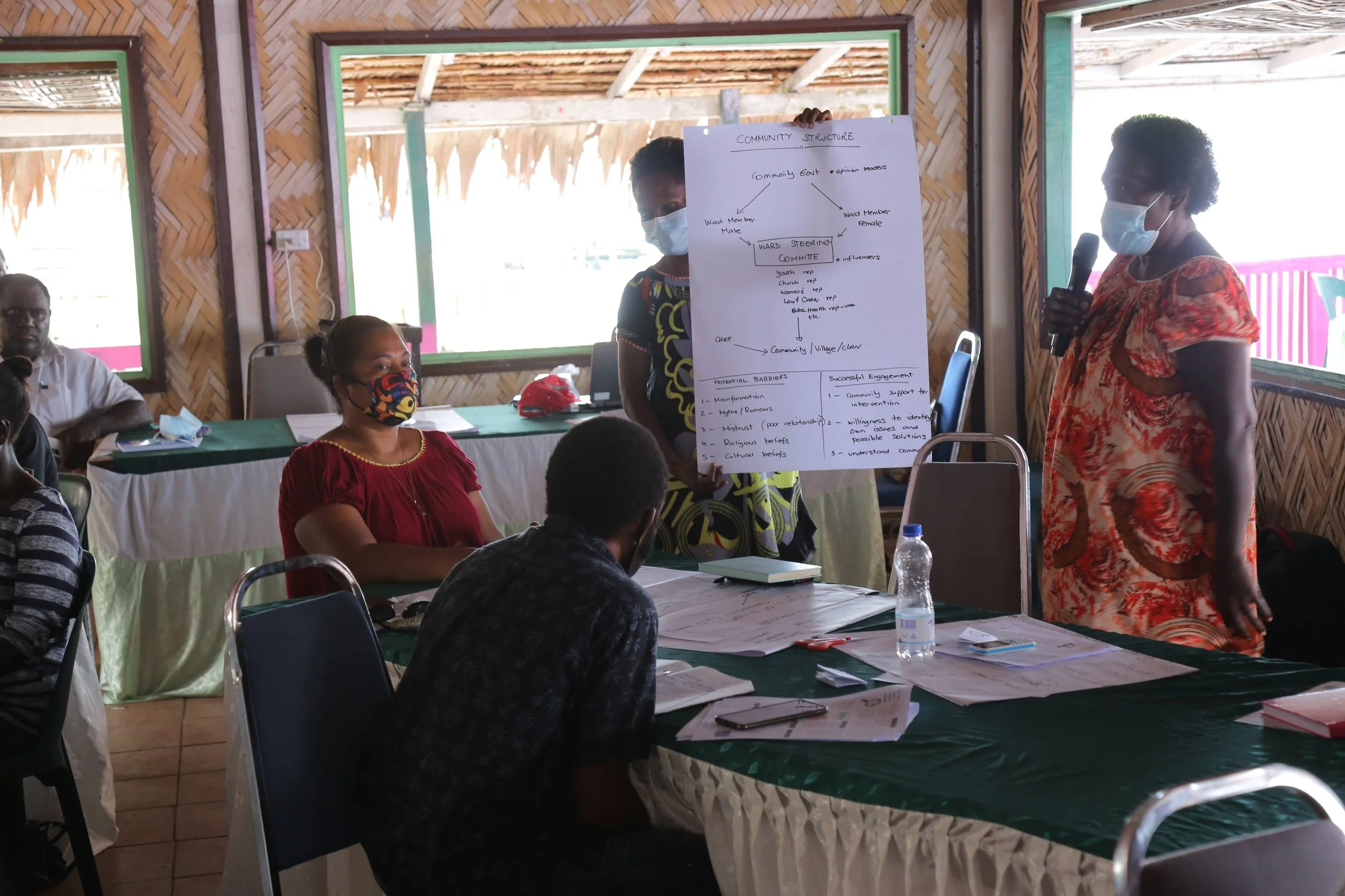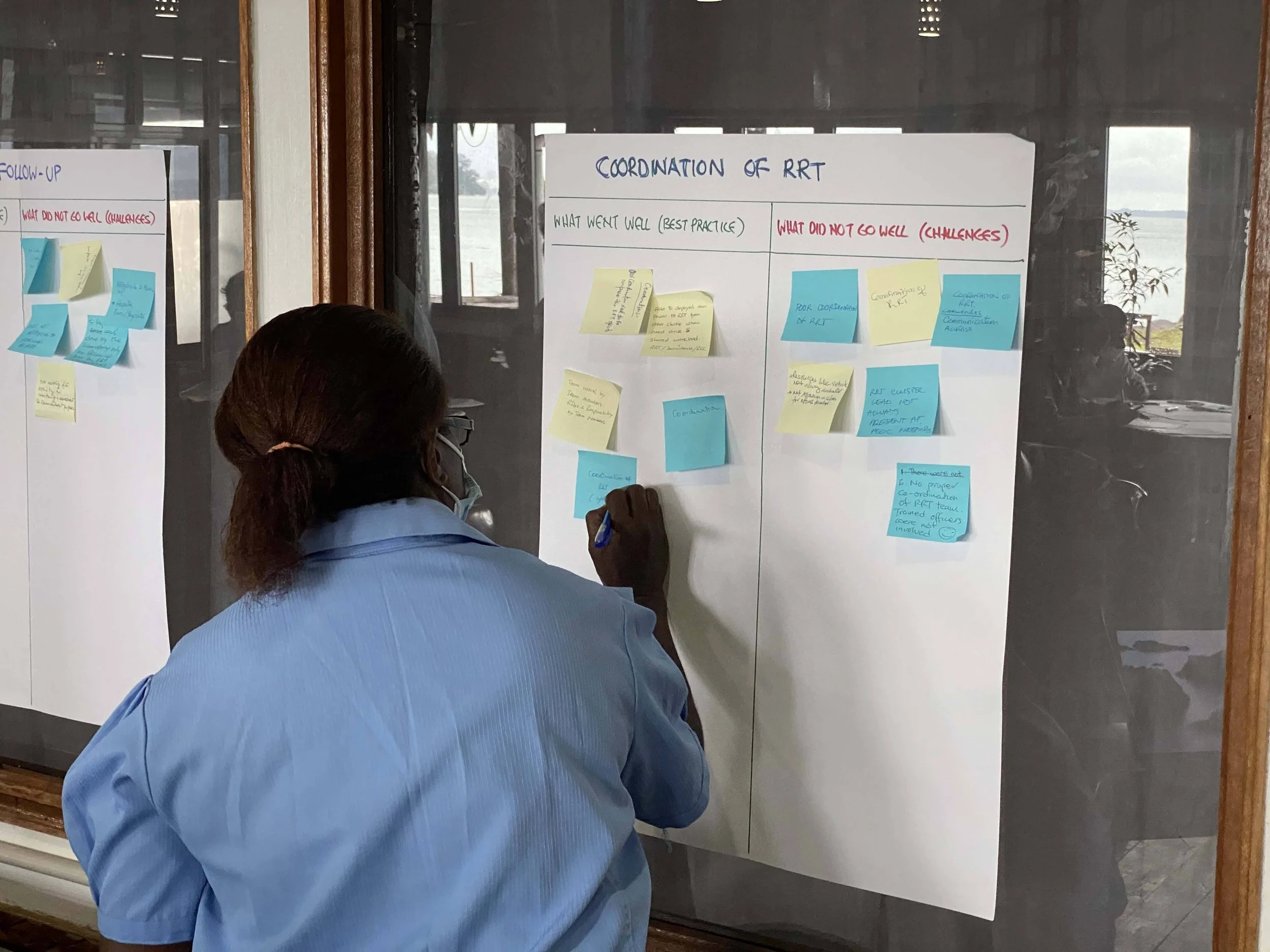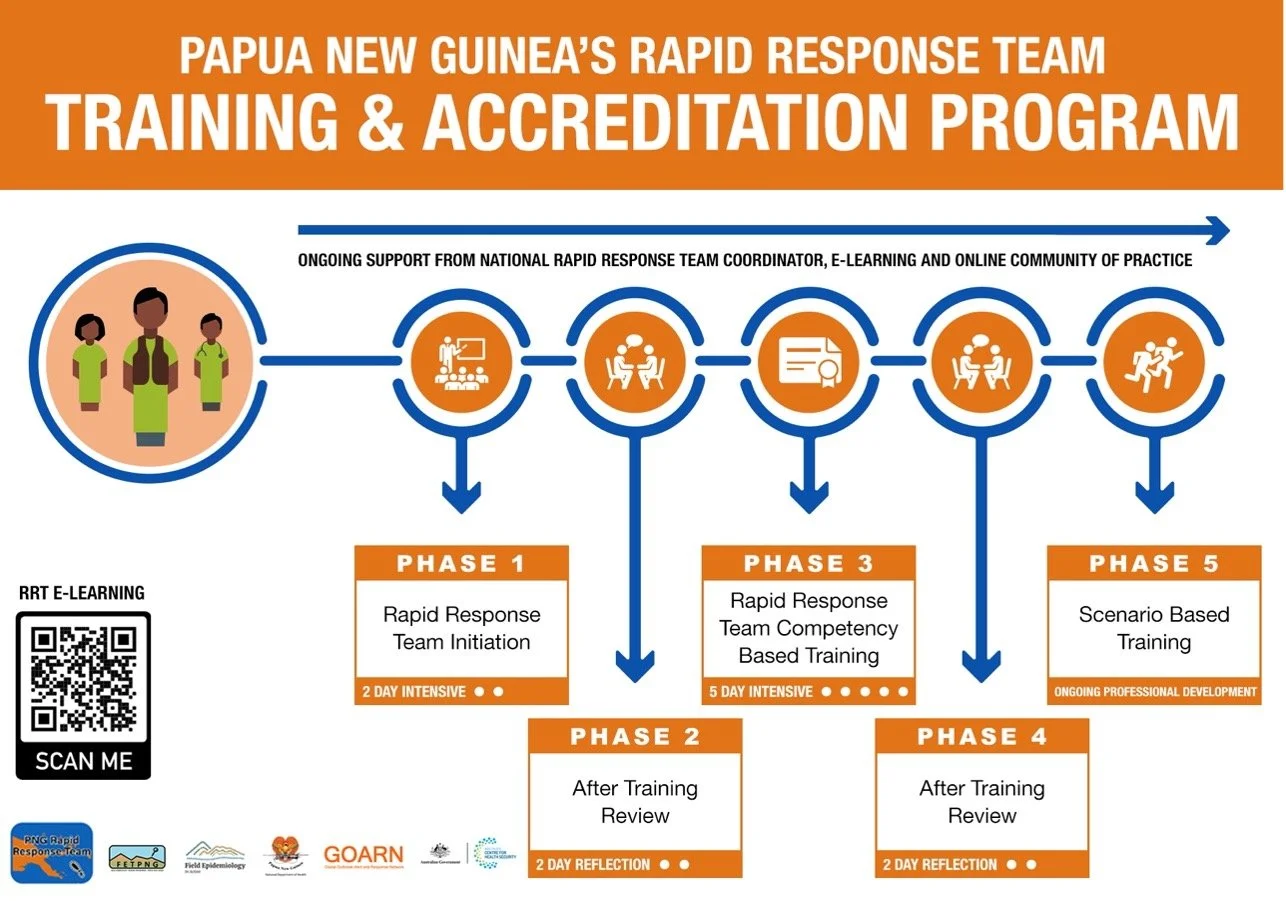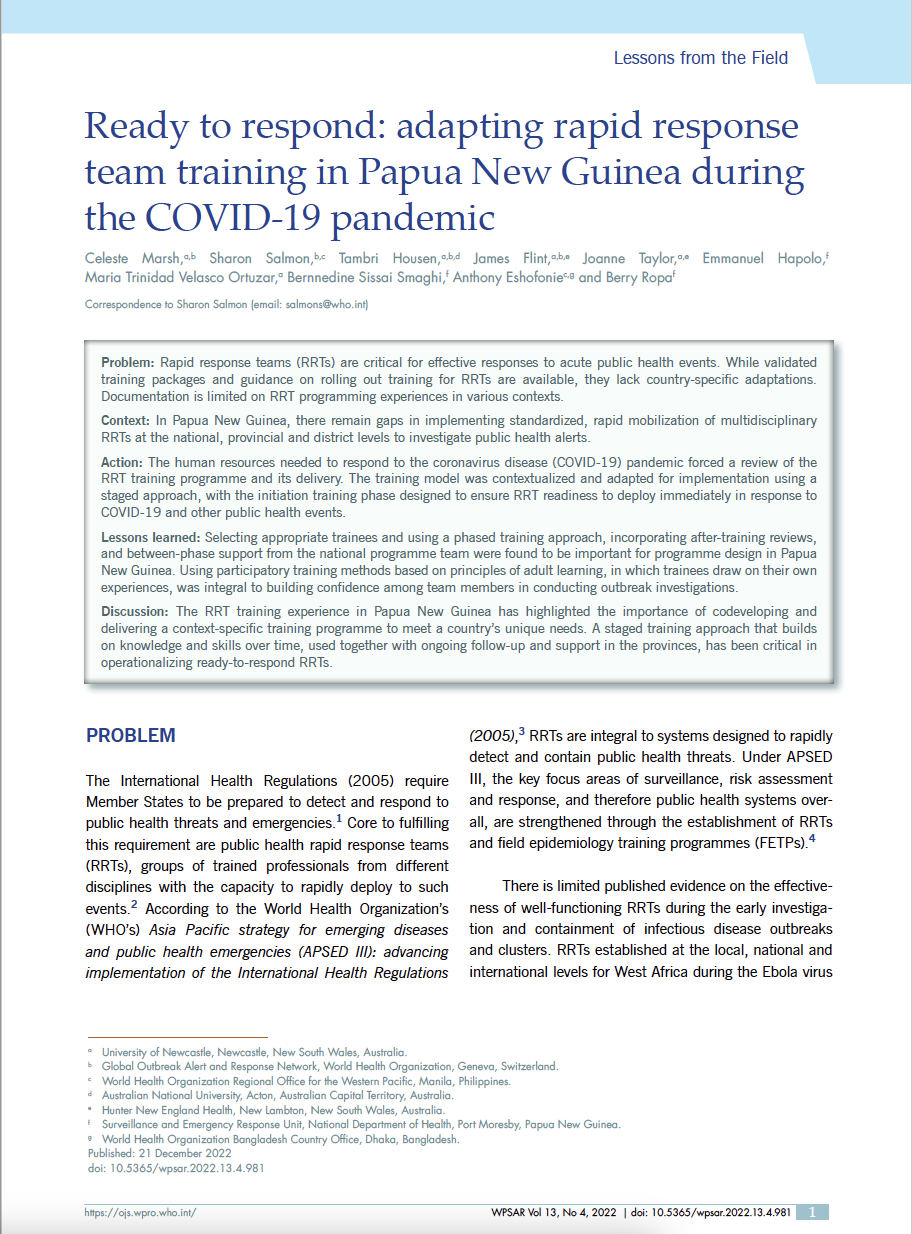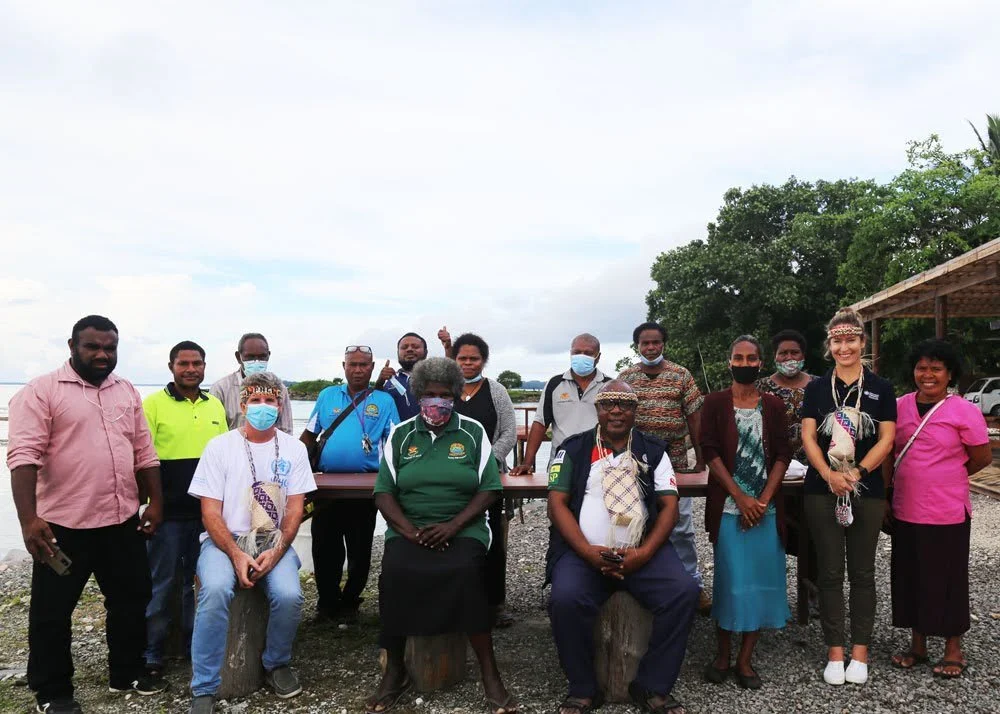The Rapid Response Team Training Program of Papua New Guinea: Flexibility and creativity in challenging times
Written by Celeste Marsh - Epidemiologist at Field Epi in Action
What are rapid response teams?
Rapid Response Teams (RRTs) are multidisciplinary teams trained to quickly deploy to investigate and respond to acute public health threats. They consist of field epidemiologists, surveillance officers, laboratory specialists, clinicians and logisticians, just to name a few. In Papua New Guinea (PNG), they are embedded within the Provincial Health Authorities (PHAs); teams work in collaboration with an incident management team, the National Department of Health, other organisations and communities. RRTs respond to a range of threats posed by infectious disease outbreaks, natural disaster events such as flooding, landslides and earthquakes, and other challenges such as environmental hazards with public health implication.
Papua New Guinea’s rapid response training program
PNG’s rapid response team program was initiated in 2019 by the national Field Epidemiology Training Program (FETPNG) to improve the capacity for RRTs to effectively and efficiently respond to and contain public health threats. With the assistance of the World Health Organization (WHO) the program commenced as a five-day pilot delivered to the National Capital District RRT. Soon afterwards, PNG was faced with the COVID-19 pandemic.
Pulling people out of their workplace for a week of training became difficult as the response to the pandemic intensified so Field Epidemiology in Action (FEiA) worked with the WHO and National Department of Health to adapt the RRT training model.
A two-day initiation training was commenced at the provincial level, focussed on RRT team structure, roles and responsibilities and laying the foundations for good RRT operation. The program has since evolved based on feedback by participants to better suit the PNG context into a staged approach consisting of 5 phases that takes teams from initiation, to in-depth technical training and finally through a simulation exercise (see pictograph below).
Recognising that establishing effective RRTs in an iterative process that takes time, the model also includes two phases focussed on reflection where RRTs identify barriers and enablers to timely and effective deployment and establish action plans to improve future responses.
Recent paper published on Rapid Response Training in PNG
You can read more on program development, adaptation and implementation and lessons learned in a paper recently published in the Western Pacific Surveillance and Response Journal. (https://ojs.wpro.who.int/ojs/index.php/wpsar/article/view/981 )
Where are we now?
To date, RRTs in 14 provinces and 1 district have received initiation training while 7 provinces have progressed through an after-training review. The PNG RRT network has a very active WhatsApp group where alerts are raised across provinces. Examples of alerts have included a highly infectious skin disease, suspected measles, pertussis outbreaks, sudden death in dogs in a remote village and increases in COVID-19 cases. The platform has also been used to address misinformation, seek clarity on types of testing and to request additional resources.
The curriculum for phase 3 – a five-day competency-based course is under development and scheduled to pilot in April this year. This phase will focus on the technical components of the various disciplines that make up RRTs and will be delivered through a scenario-based lens.
As PNG enters the recovery phase of the COVID-19 pandemic, RRTs are busy responding to other disease outbreaks. Sandra, TB Program Coordinator of Gulf Provincial Health Authority explains how flexibility in the field is necessary when responding to an alert as part of an RRT:
“ I found out on the register and heard that there were a lot of drug resistant TB cases popping out from (an) area within the … the catchment villages of Kru Health Center. So I had to… plan to take my team in.
So…we went…we did awareness, and then we start doing screening as well. So we had the awareness team, awareness nurses, the outreach nurses. We (were) examining the patients and also talking to the patients… and we had to collect samples of those who….had cough for more than two weeks.
But whilst doing that we found out that there (were)… a lot of cases with more similar symptoms of whooping cough…..I had to shift the focus and do the double screening of the children.
And in the evening we had to leave to bring back the information …back to the headquarters, to inform the disease control and the rapid response team to (quickly) take on swabbing and testing and then we could (further) find (and) manage the cases”.
What does the future look like for rapid response in PNG?
PNG’s RRTs, as first responders are key players in the strengthening of the country and region’s health security. RRT training and capacity building is gaining momentum across the country. As the RRTs move through the program phases, they will become better skilled, and equipped to respond and provide training for district level staff. Ongoing strength and resilience of the RRT network depends on long term commitment and investment by both local and national Health Authorities.
About Field Epi in Action
We facilitate proven high impact intervention-based field epidemiology training, designed to develop work-ready graduates equipped with the necessary tools to support outbreak detection and response.

